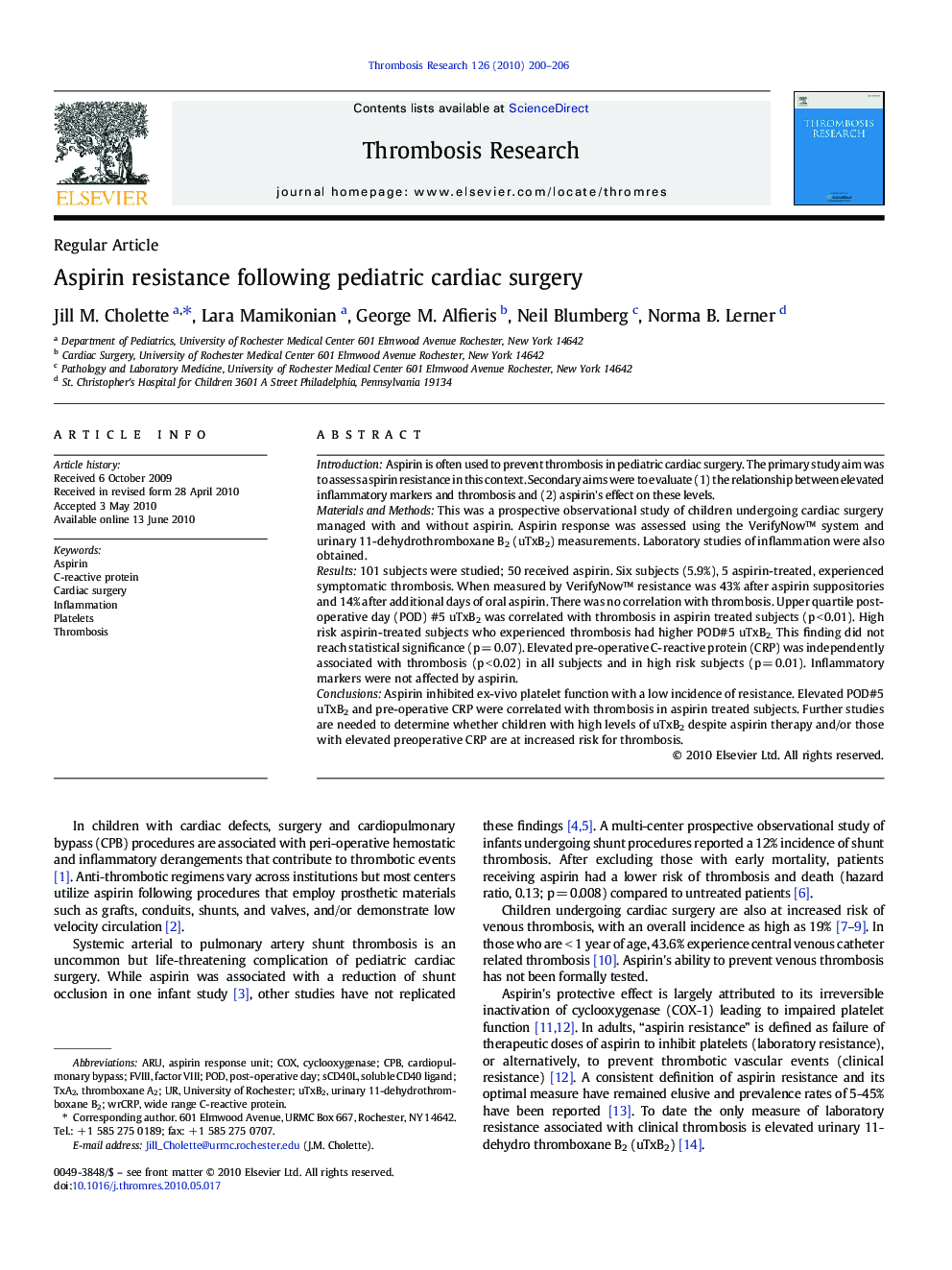| Article ID | Journal | Published Year | Pages | File Type |
|---|---|---|---|---|
| 3029300 | Thrombosis Research | 2010 | 7 Pages |
IntroductionAspirin is often used to prevent thrombosis in pediatric cardiac surgery. The primary study aim was to assess aspirin resistance in this context. Secondary aims were to evaluate (1) the relationship between elevated inflammatory markers and thrombosis and (2) aspirin's effect on these levels.Materials and MethodsThis was a prospective observational study of children undergoing cardiac surgery managed with and without aspirin. Aspirin response was assessed using the VerifyNow™ system and urinary 11-dehydrothromboxane B2 (uTxB2) measurements. Laboratory studies of inflammation were also obtained.Results101 subjects were studied; 50 received aspirin. Six subjects (5.9%), 5 aspirin-treated, experienced symptomatic thrombosis. When measured by VerifyNow™ resistance was 43% after aspirin suppositories and 14% after additional days of oral aspirin. There was no correlation with thrombosis. Upper quartile post-operative day (POD) #5 uTxB2 was correlated with thrombosis in aspirin treated subjects (p < 0.01). High risk aspirin-treated subjects who experienced thrombosis had higher POD#5 uTxB2. This finding did not reach statistical significance (p = 0.07). Elevated pre-operative C-reactive protein (CRP) was independently associated with thrombosis (p < 0.02) in all subjects and in high risk subjects (p = 0.01). Inflammatory markers were not affected by aspirin.ConclusionsAspirin inhibited ex-vivo platelet function with a low incidence of resistance. Elevated POD#5 uTxB2 and pre-operative CRP were correlated with thrombosis in aspirin treated subjects. Further studies are needed to determine whether children with high levels of uTxB2 despite aspirin therapy and/or those with elevated preoperative CRP are at increased risk for thrombosis.
